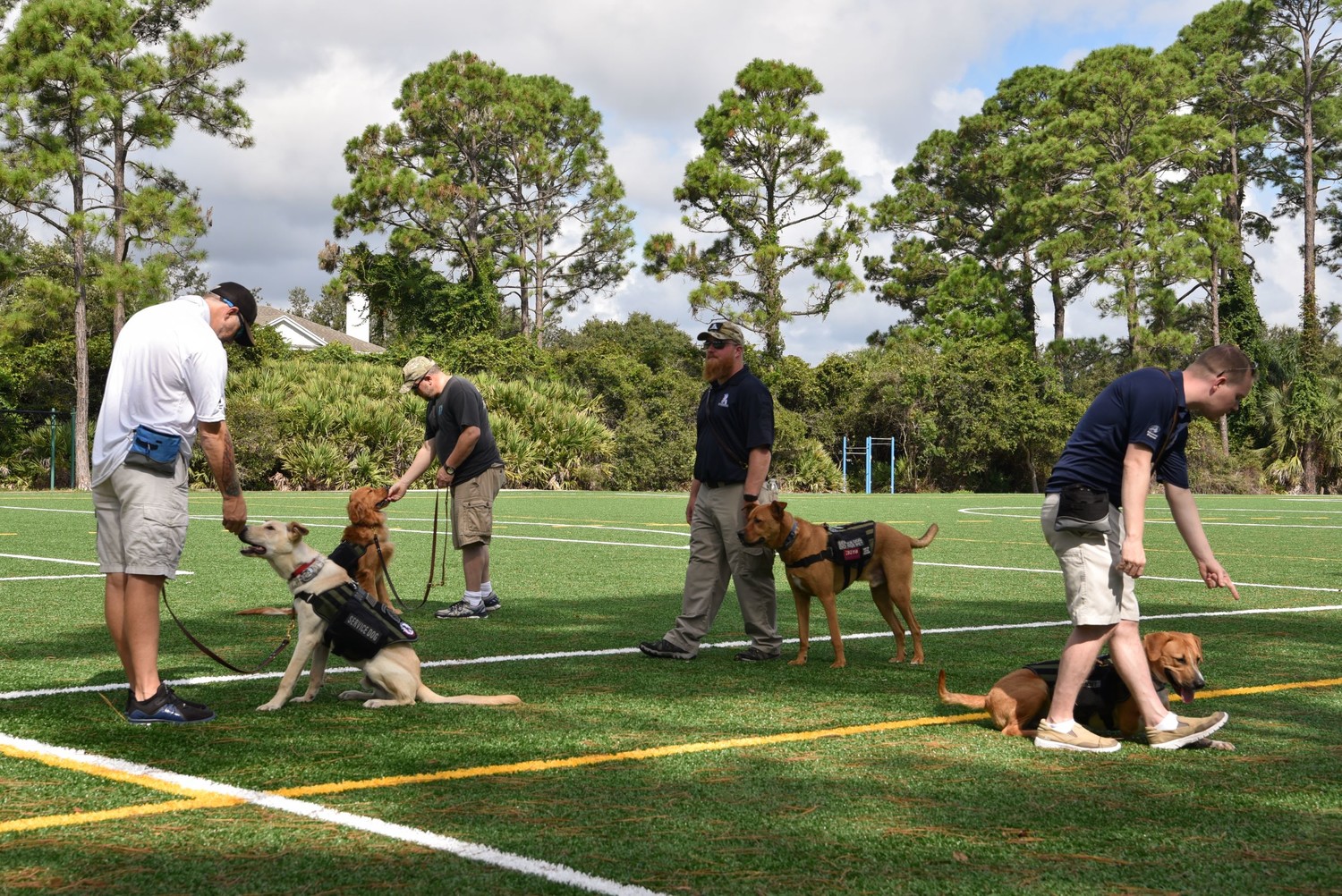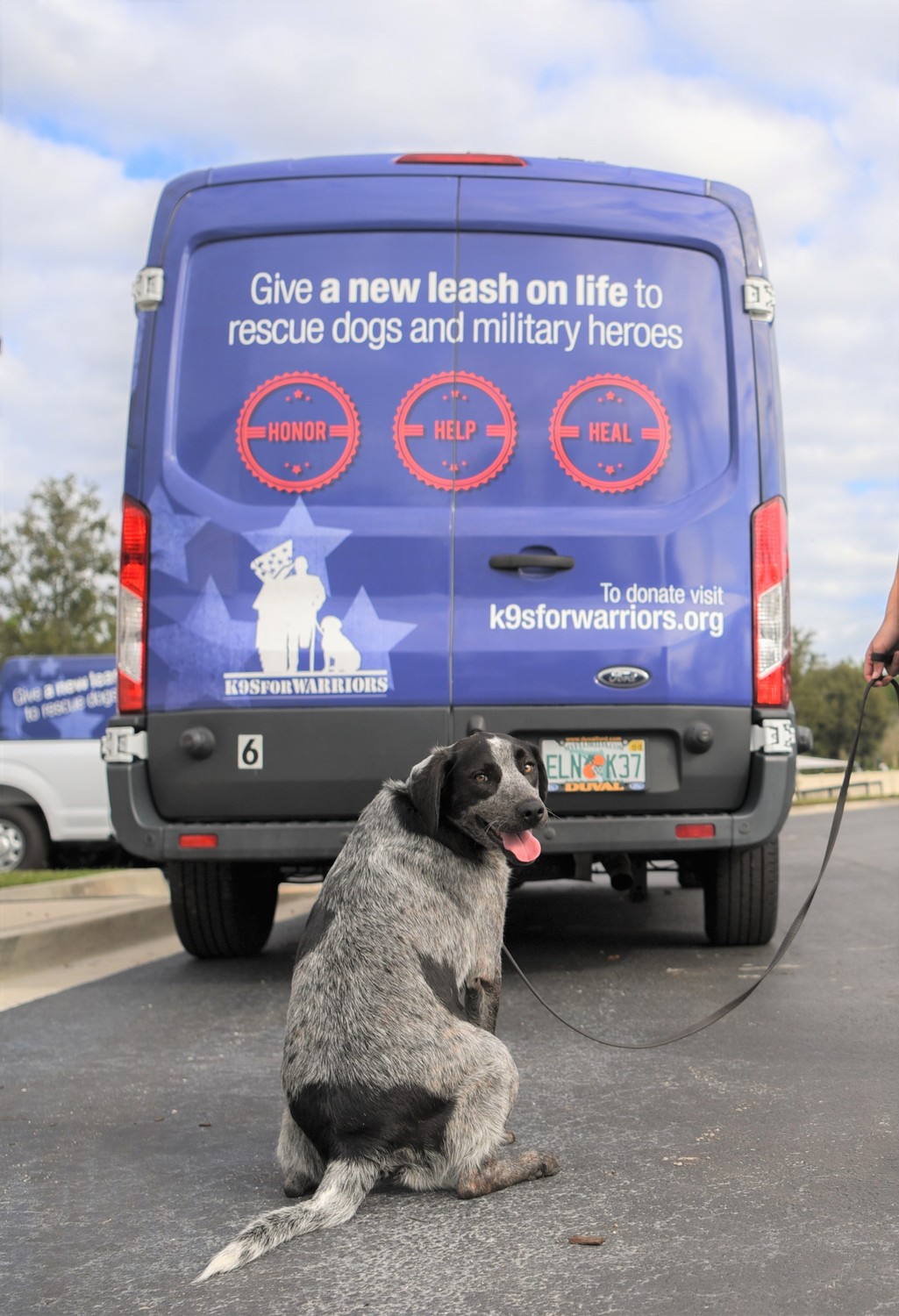K9s For Warriors and City of San Antonio Animal Care Services partner on lifesaving large dog program
Ponte Vedra-based nonprofit to build training center in San Antonio; receives $2 million investment from Petco Foundation
San Antonio city leaders unanimously voted in favor of a new partnership between Animal Care Services (ACS) and national nonprofit K9s For Warriors to bring a new canine center and rescue program to the Alamo City in Texas.
According to a press release distributed by ACS, the agreement approves an initial 10-year lease of 3 acres of ACS property to build a canine training facility for use by K9s For Warriors in its service dog training program. The initiative will focus on larger, harder to rescue dogs, and 200 ACS pets are expected to work their way through the training to become PTSD service animals throughout the country.
The Ponte Vedra-based nonprofit currently operates two campuses in Florida, and the national expansion will be a big boost for the dog rescue aspect of its program, said CEO Rory Diamond.
“The prospect of bringing our national nonprofit to San Antonio is thrilling to us,” Diamond said in the release. “We’re more than ready to help the homeless dogs there find a new purpose as a lifesaving PTSD service dog. To achieve that, over the course of the next year, K9s For Warriors will be engaging the San Antonio community to build a base of volunteers and donors to ensure our organization’s success in the Alamo city.”
City of San Antonio Animal Care Services Director Heber Lefgren echoed those sentiments.
“Collaboration continues to be the core of ACS’ success and we’re thrilled to have a partner to support our mission and help our country’s veterans,” Lefgren said in the release. “K9s For Warriors has a big heart for these big dogs and we love that they will be saving a life to save another.”
Petco Foundation invests $2 million in K9s For Warriors
While the program will begin in the spring, a recent $2 million investment from the San Antonio-based Petco Foundation is expected to aid in construction of the canine center itself, which will kick off later this year.
According to a press release distributed by K9s For Warriors, the grant investment is the largest ever given by Petco Foundation to the nonprofit. The new center will be named Petco Foundation Canine Center in honor of the Foundation’s transformative investment.
“We are incredibly grateful and humbled by the Petco Foundation’s transformative gift to our program and their continued support of our nation’s heroes,” Diamond said in the K9s release. “This donation will be the cornerstone of our national expansion and will be the difference in our ability to carry out our mission of rescuing dogs and training them to be life-saving service dogs for disabled American veterans.”
K9s For Warriors is a nonprofit organization that has become that nation’s largest service dog provider for disabled veterans struggling with the invisible wounds of war brought on since 9/11. The VA estimates that 20 veterans die by suicide every day. It is K9s For Warriors’ mission to stop veteran suicide and save veterans’ lives by saving the lives of high-kill shelter dogs and training them to mitigate the invisible wounds plaguing American veterans. K9s For Warriors has rescued dogs from Florida, Georgia, Texas, California, the Carolinas and more. In 2018, K9s For Warriors rescued 257 homeless dogs and graduated 122 veteran-canine teams. The Petco Foundation investment will help nationally with rescuing and training more service dogs.
“Saving shelter dogs and transforming them into helping heroes to support our nation’s veterans highlights the true potential of these canines and inspires others to see the incredible capabilities of shelter dogs,” said Susanne Kogut, president of the Petco Foundation, in the K9s release. “We are proud to help make K9s for Warriors’ national expansion possible all while helping to save more dogs in Texas. We are honored to provide the vital support necessary to assure that more veterans receive a trained canine companion to help them through the challenges they face when they return home to civilian life.”










